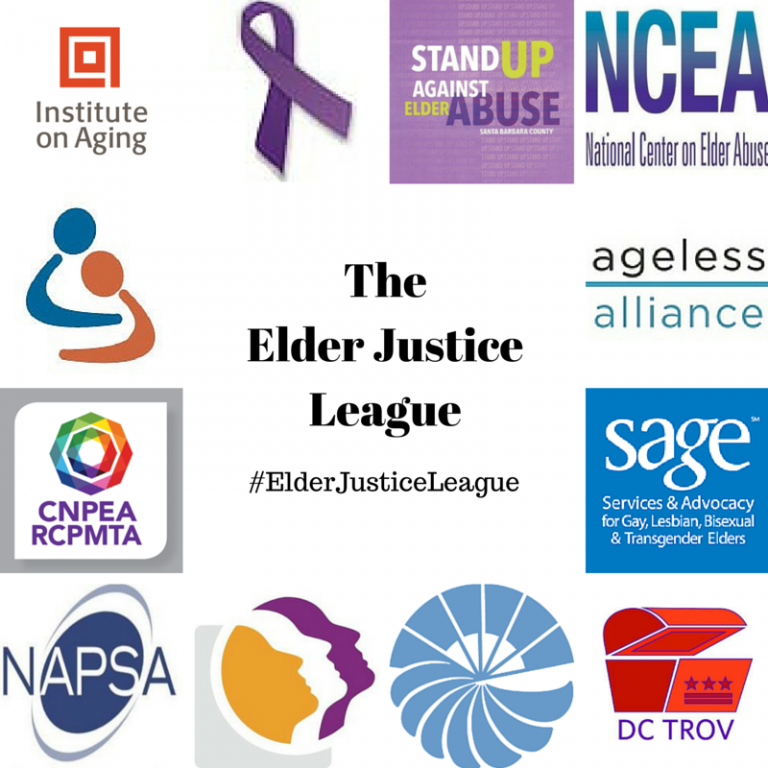- Details
- Published: 05 April 2016
By Talitha Guinn, N.Y.C. Elder Abuse Center Social Media Manager in collaboration with Ana Poblet-Kouttjie, MPH Project Coordinator, National Center on Elder Abuse, Keck School of Medicine of USC
Watch out world – the Elder Justice League is here! The League raises awareness of elder abuse across social media platforms and takes elder justice conversations mainstream. Convened in October 2015 by the National Center on Elder Abuse (NCEA), the League is comprised of elder justice advocates representing 11 organizations. Participating organizations have varying funding streams and missions, serve diverse populations, and share a wide breadth of expertise. League representatives are interdisciplinary and geographically diverse, hailing from many parts of the US and Canada. (Click here for a list of participating League organizations and representatives.)
The League’s methods are time-saving and effective. First, League members work together to generate ideas for elder justice-related social media messaging. Then, by coordinating the release of the messages, a multiplier effect is created, deepening the impact beyond what any one organization could accomplish alone. For example, during a recent meeting, we found that several organizations held a deep commitment to intergenerational approaches to end elder abuse. Since that meeting, members of the Elder Justice League have supported one another’s messaging around intergenerational elder justice causes where those messages align with each individual member’s core mission.
In addition to common messaging, the League offers many tangible benefits to member professionals and organizations. Current members report that their Facebook and Twitter posts are reaching larger audiences and attracting more followers. This group also offers a space to provide and receive feedback about campaign ideas, learn from each other’s efforts, obtain support and build new professional connections.
Another benefit is reduced isolation and opportunities for synergy. Elder justice advocates often work solo because their organizations have either a small staff or a staff with only a small percentage of time allocated specifically to elder justice initiatives. By coming together for a monthly web/teleconference and staying in touch via email, previously siloed advocates have become energized around their mutual work.
Meetings are coordinated by NCEA, but can be hosted and moderated by any of the members. During League conference calls, participants discuss current and upcoming social media campaigns, brainstorm new ideas and share social media handles and hashtags. All members are invited to contribute agenda items and anyone can participate in working groups that form to work on a particular issue or event. For example, several members are currently working on creating unified messaging for World Elder Abuse Awareness Day.
The League has created an ever-evolving and regularly updated database that includes member names, contact information and organizational social media account names. This database is a resource that can be used to locate other elder justice professionals online to share/like/comment on posts. Group members are active across multiple social media platforms and share content using popular hashtags such as #elderabuse and #elderjustice to increase the reach of individual posts and amplify online conversations.
If you work for an elder justice-focused nonprofit, government agency, organization, or coalition that has a social media account, you are invited to join the coalition. You don’t have to be a social media guru to share what you know and learn from others.
Email Ana Poblet-Kouttjie at if your organization would like to join The Elder Justice League. Thank you in advance for considering bringing your talent to the cause of taking elder justice mainstream – one click at a time.

















